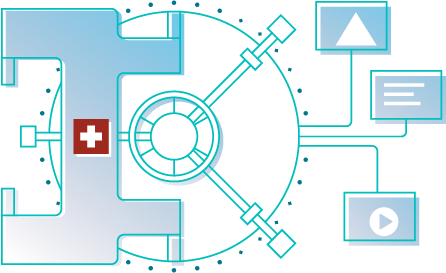By Matthew Jones • Jan 22, 2020
When purchasing non-physical services, such as data storage, the same concept of a interconnected supply chain also applies. After all, in our hyper-globalised world, supply chains cross back and forth over countless countries. Especially when it comes to the digital domain, where information can cross borders in seconds.
For example, you might buy hosting from one company but does the buck stop there? Unlikely. What’s more likely is that there’s a whole supply chain involved. You simply deal with the last in the chain. There are many other parties involved, though many of them are much less visible.
But does it matter? After all, with digital services there’s no physical product, no postage involved if you want to return it! In the following section, we go to explain why it is important, especially with data. As one of your organisation’s most important assets.
Accountability: An Analogy in the World of Physical Products
Accountability Counts
With new data driven legislation such as GDPR, it is important to always know exactly who is responsible for your data. This also extends to where your data is. You might know where your main cloud data is stored but do you know where the staff that handle that data are based? After all, different nations and organisations have their own data legislation, navigating across that can be a legal minefield.
In a world with more and more data, accompanied with more and more data legislation; what is the best way to make things as straightforward as possible? Well, as two key issues stem from companies and nations having their own data policies/legislation, then the clear solution to this is to have only the minimum involved in both cases.
Suisse Safe: The Key to Accurate Accountability?
The Picturepark Suisse Safe does this in two ways. First, all data centres are located in only one storage region. That means also only one economic area and one legal jurisdiction.
Secondly, Suisse Safe is completely independent from where other Picturepark Cloud data is stored. This creates a safety buffer. Take for example, a user on a Picturepark instance accidentally overwriting another file, accidentally. The file that has been replaced would usually be permanently rewritten. However, with the Picturepark Suisse Safe, things would be much more comfortable. You would have up to three months to access to old overwritten file, thanks to daily back-ups.
In the unlikely event that you would need to request the removal of data or find out more about a piece of content due to a court order, an IaaS host going out of business or a similar event, then it would be simple request: you would need to only go direct to Picturepark to identify it or to remove it from your back-ups. You wouldn’t need to worry about having to wait for a chain-reaction of events to occur: whereby one company would contact another, who would then contact another... ad infinitum.
What does this mean? This means that your data hosted with Suisse Safe is directly accountable to Picturepark. Due to that, it’s easy to keep your IT department, legal department and management ‘in the know’. Transparent and easy to understand for all.
This blog is part of a series about Picturepark’s Suisse Safe offering. Delivering premium accountability and reliability in data storage.
